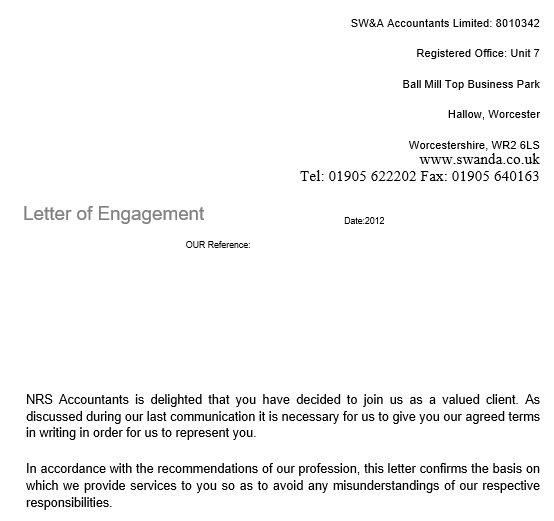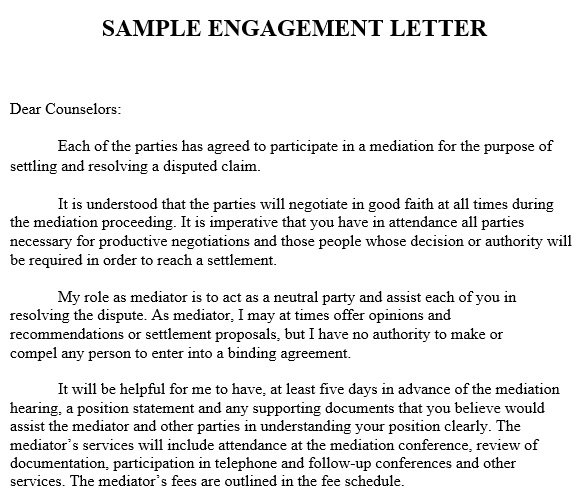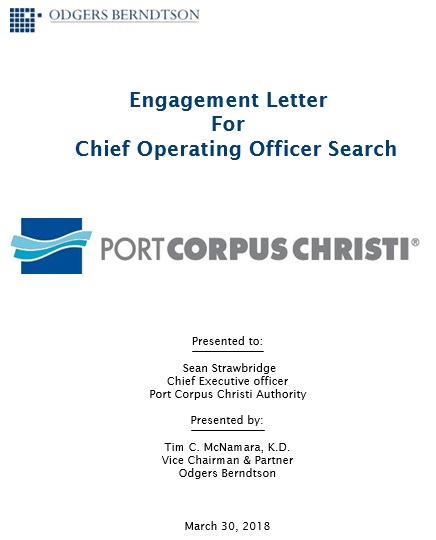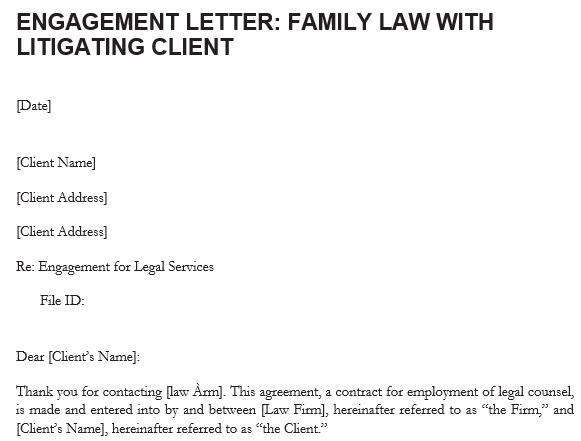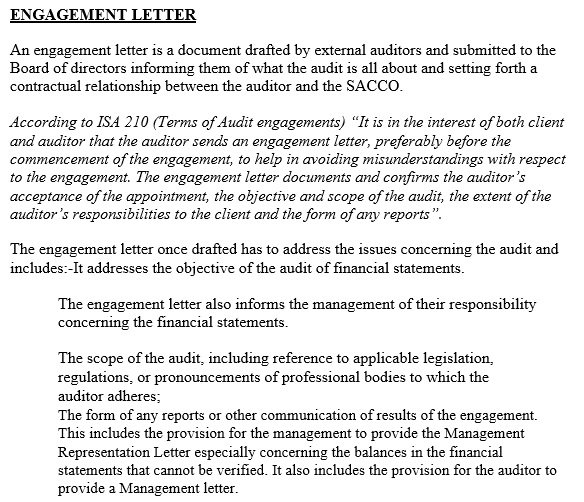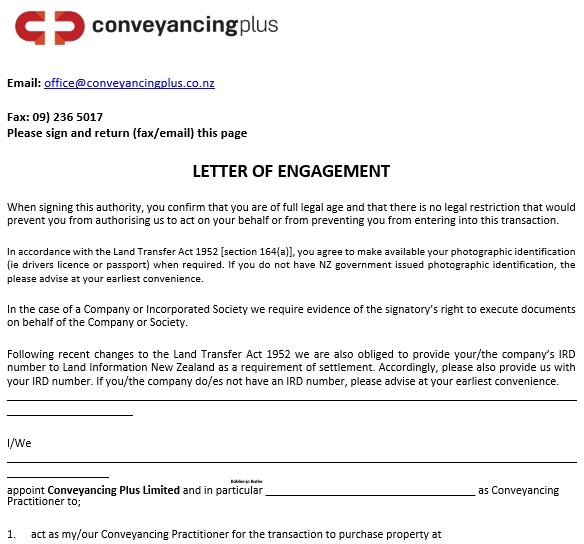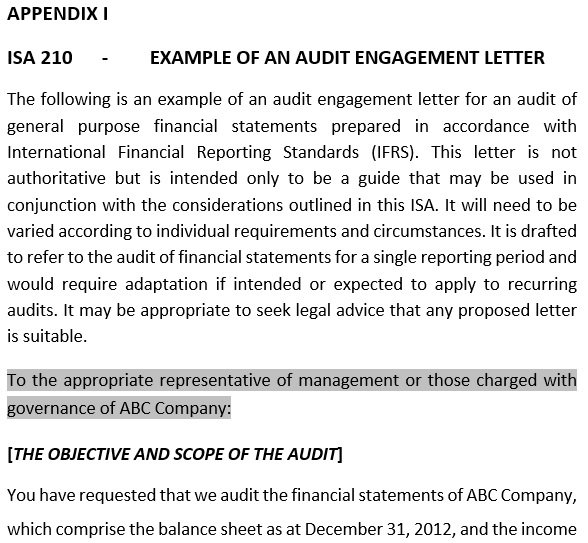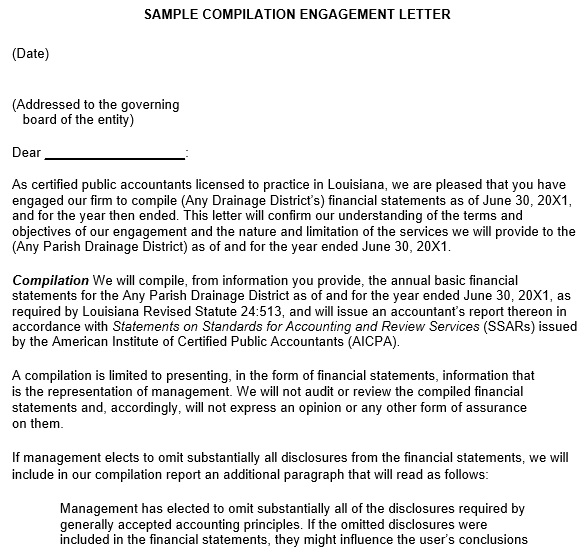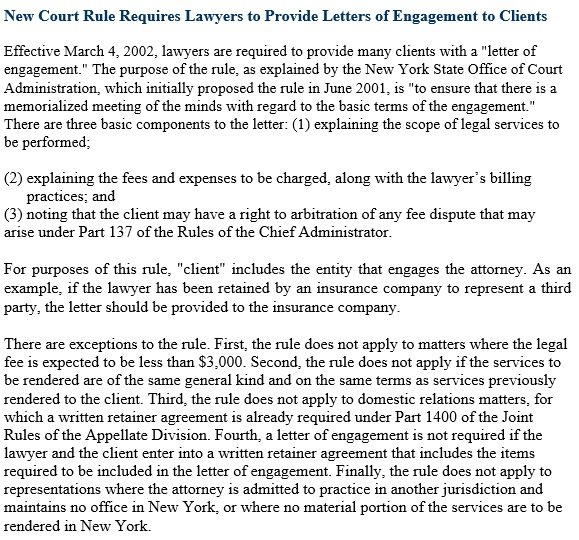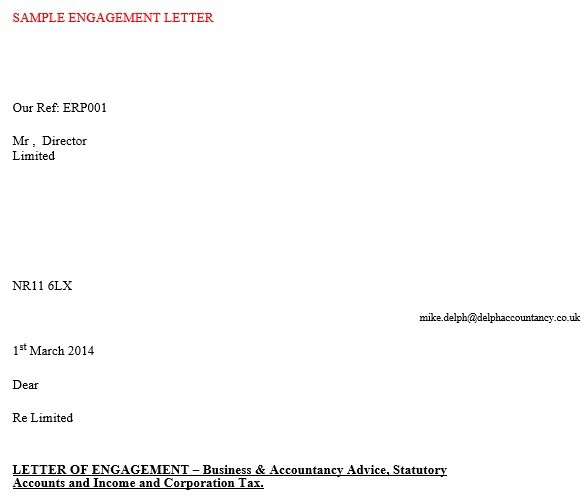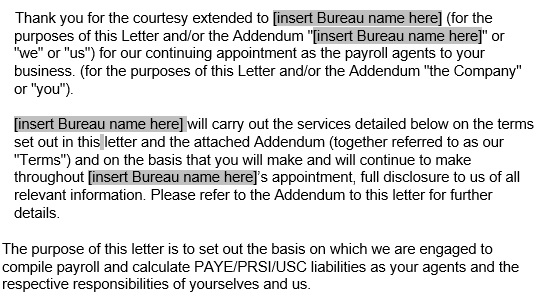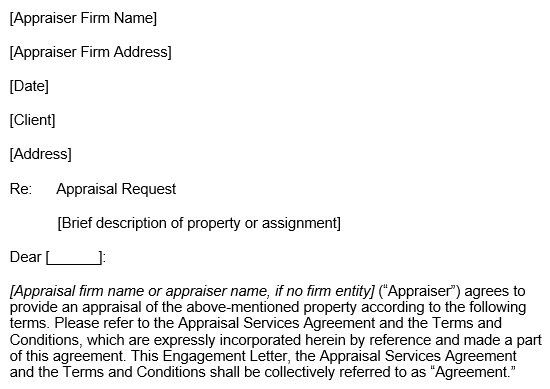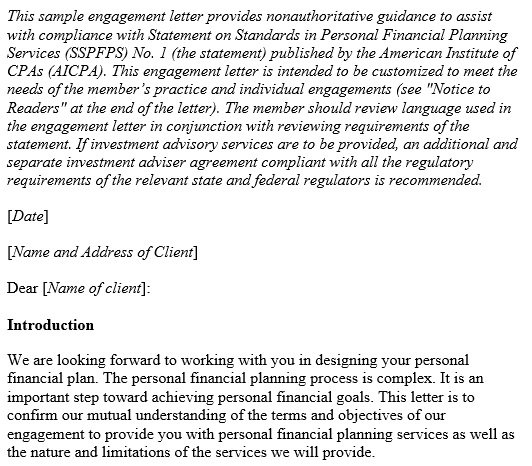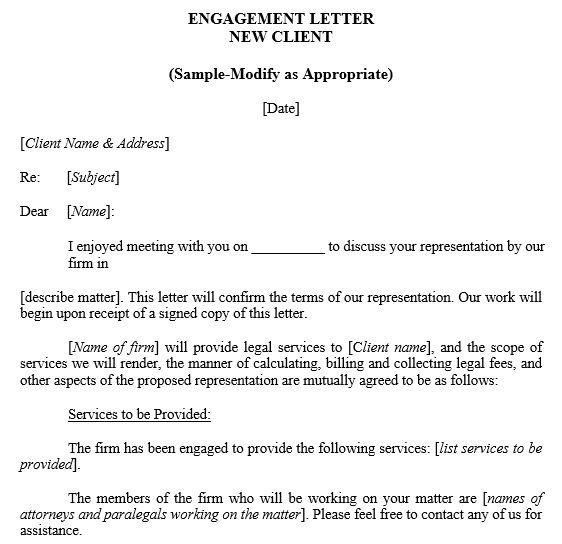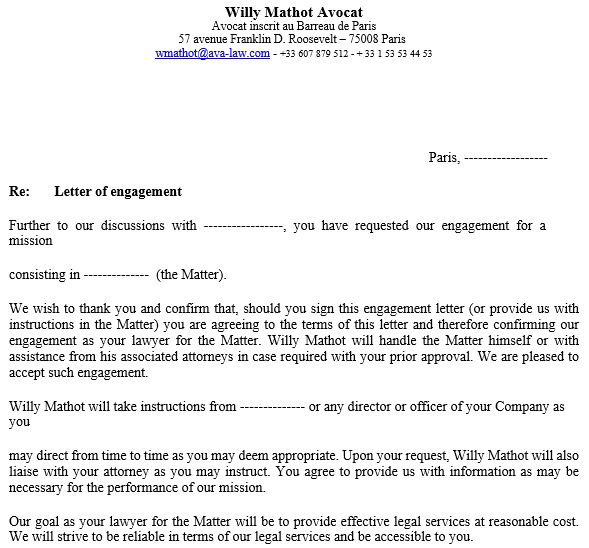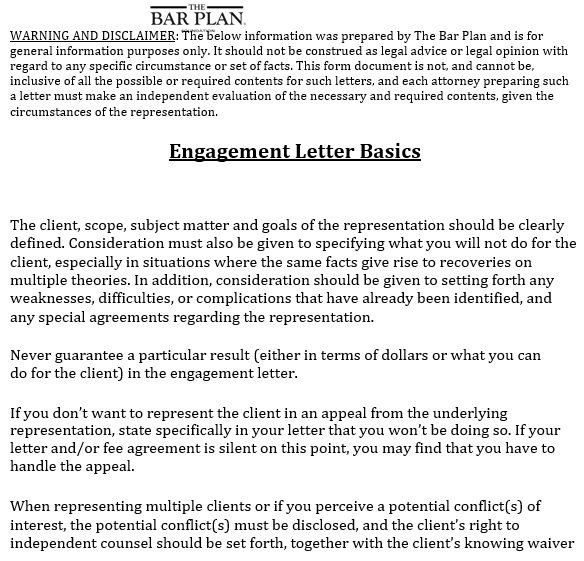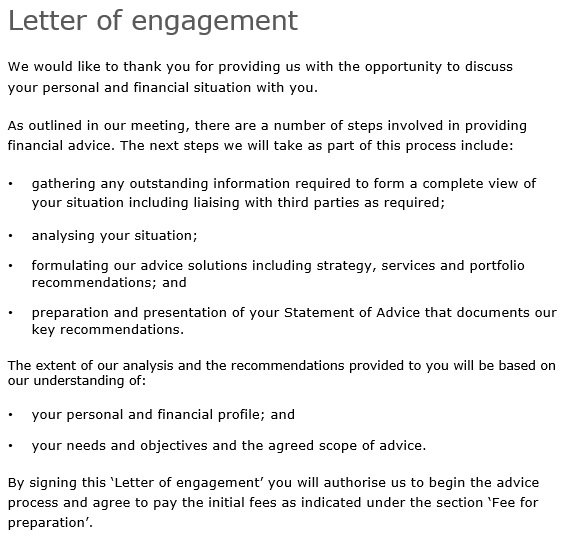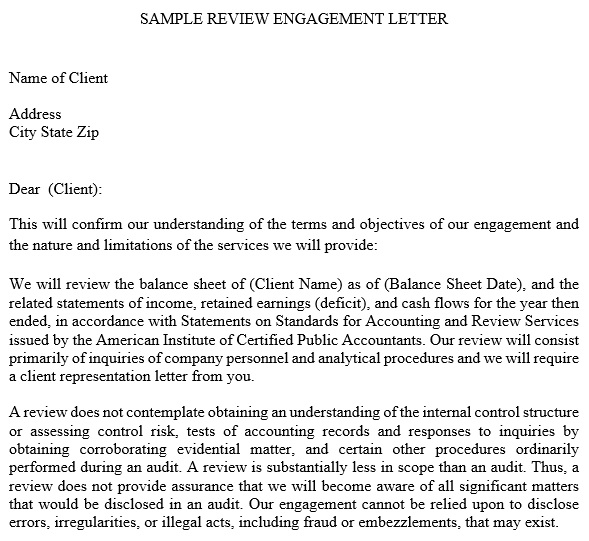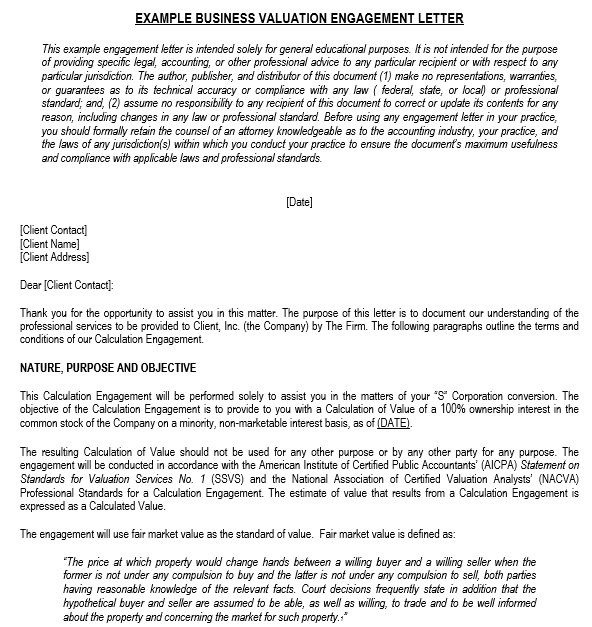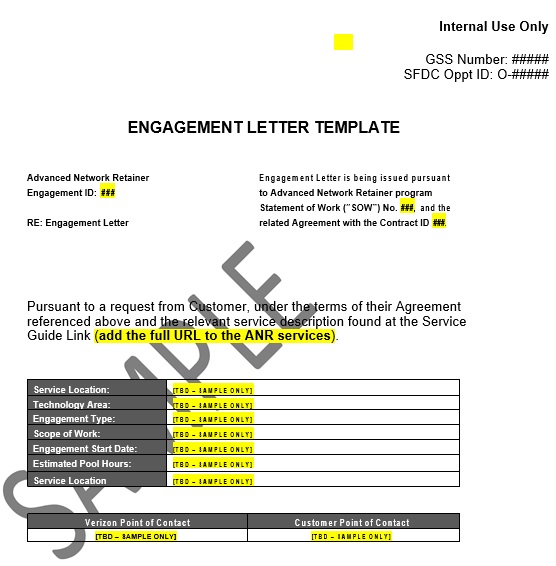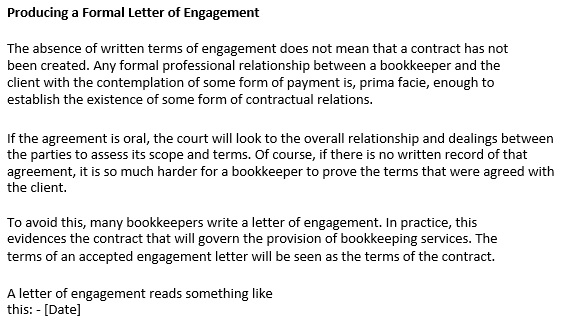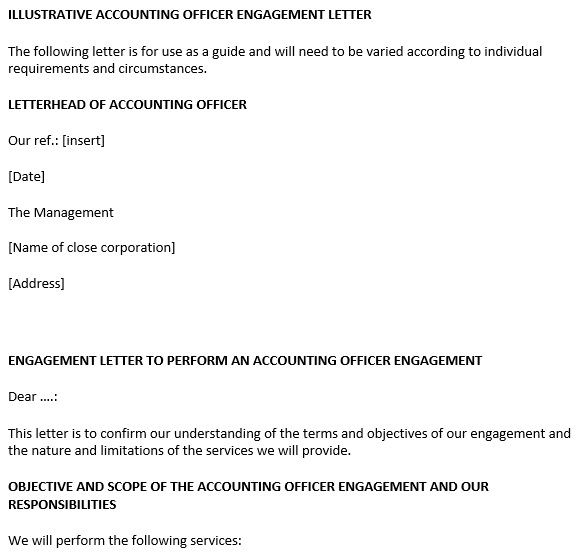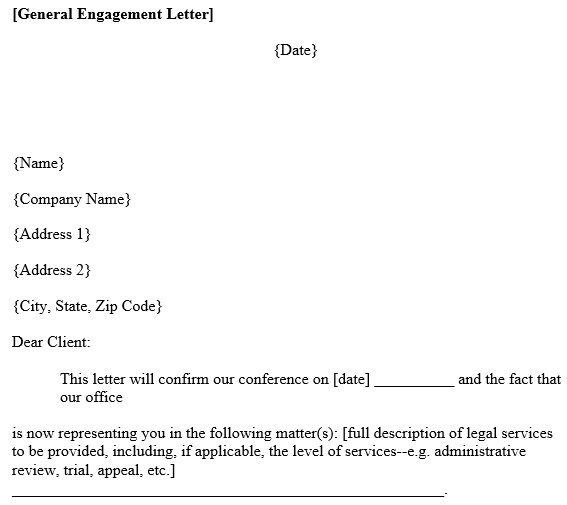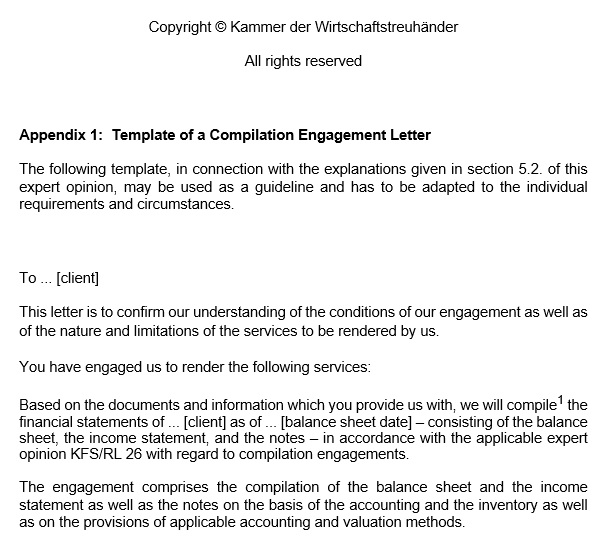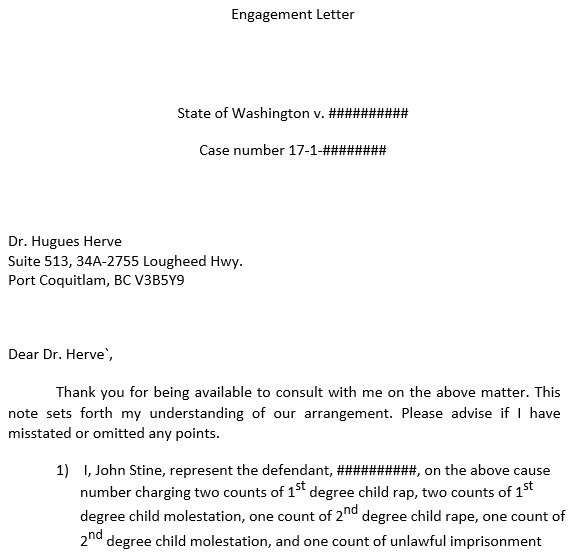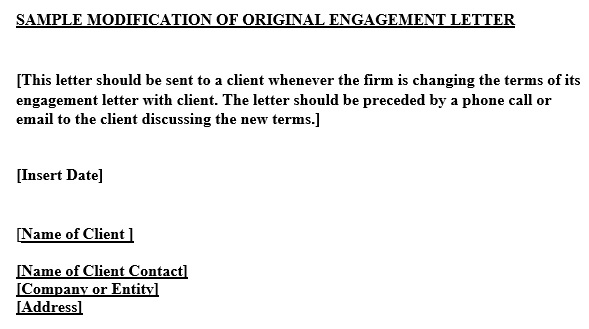An engagement letter is a written agreement that describes the business relationship between a business establishment and a client. The main purpose of this letter is to set the expectations for both parties. Usually, the agreement explains what services to deliver, terms and conditions, compensation, and deadlines.
The importance of an engagement letter:
In the world of business, the letter of engagement is the basis of many legal relationships. The letter constitutes a legally binding agreement between two parties when they have signed it. Here are the three important reasons that why you have to compose this letter;
It legally binds the relationship or partnership
When you have a legally binding contract in place, you can have a great start with your relationship. It lends security to both your client and yourself. In case, there is a disagreement between yourself and the other party, the letter of engagement can be your go-to guide.
It sets the expectations
Tax resolutions clients facing a difficult experience. They will expect you to provide them foresight on what they need to do. They may want to see more certain language pricing and the scope of the services you provide. Moreover, they also want to see how changes in the agreement may occur to better their predicament. The client’s confidence boosts by knowing what to expect from the very start and you both need to move forward.
It prevents miscommunication
Through a verbal agreement, your relationship with your client starts. This is already an agreement but you may not even think that. When you come to letter of engagement, you set everything on paper. Both parties affix their signatures on the letter.
What should be included in your engagement letter?
You should include the following elements in your letter;
Identification
Here, you have to determine the individual, group, entity or part of an entity who will receive your services.
Scope of your services
Scopes of your services is the most important section of any engagement letter sample. This involves the scope of services that you will assist mitigate and acts as a guard against clients who would establish unreasonable expectations about the services you provide. The services you include, you have to be very specific and clear about them.
Engagement period
Indicates the dates that when the agreement begins and ends. If there is an expected deliverable involved, you may also include the expected delivery dates.
Fee structure
You have to create a detailed presentation regarding how often and how much you plan to bill your client. Also, specify the extra services that the client requested but that aren’t part of the letter. There should also be a clause in the letter that in case of delayed payment specifies what would happen. This might be a suspension of services or a late fee.
Responsibilities
The client has the responsibility to perform certain actions in most engagement letters. They also have to provide certain records or information. Be very specific and demand the information you’re relying on in detailing the responsibilities of the client so that you can accomplish the service.
Professional standards
Since professional standards may vary from one place or area to another so refer to them that govern the engagement.
Confirmation of terms
Including the confirmation of terms is the last part of your letter of engagement template. This makes sure that your clients understand the elements of your business agreement.
How to make an engagement letter?
It is considered wise to have a written contract with an audit client. It depends on the business entity to whom you will addressing the letter. Here are some tips for you;
- The right addressee to the letter will be the board of directors in case you’re working with a company.
- You can address your letter to the chief executive officer if the client is only a small company that doesn’t have its own board of directors.
- In case, you are auditing a sole proprietorship, you can address your letter directly to the owner.
- Address the letter to the partners for partnerships.
When you have identifies to whom you address the letter, follow the below steps to write the letter;
Consider the objectives of your letter
In case of a financial statement audit, your main objective is to provide your opinion regarding the financial statement.
State the responsibilities of management
These may vary on the basis of the terms and conditions of the agreement. For example, it is management responsibility to give financial statements and the proper application of generally accepted accounting principles.
Your responsibilities
Your responsibilities may also vary. For instance, your one of the responsibility for an audit of financial statements is to conduct the audit in accordance with the generally accepted auditing standards.
Any limitations of your engagement
You should keep in mind that the purpose of an audit is to give assurance that the financial statements don’t include any material misstatements. But, there is always a risk that illegal acts, material errors or fraud can exist as you won’t examine the transactions directly.
State hiring restrictions
Your client won’t try to hire anyone who works on the audit team is one general condition of an engagement letter sample. There generally exists 1-year “cooling-off period” when you work on a client audit. This indicates that in the company, you shouldn’t accept a position until that time passes.
Other terms to include
- Include your fees and the dates that you expect to get paid.
- In the company’s field, any plans of hiring specialists to help you out.
- The circumstances under which you can terminate the engagement.
How does an engagement letter work?
An engagement letter is used to set limits on the obligations of a company and it develops a business relationship between the parties. This document is mainly used by auditors, lawyers, consultants, and accountants on daily basis. They use this letter to state the scope of services.
For example, the letter is used by a business or an individual when they hire the services of a lawyer. They use it to demonstrate the particular purpose in doing so or the field of expertise to apply the services. On the other hand, to make a land purchase document, a contractor can hire a lawyer but they can’t ask the same for legal suggestions regarding other problems.
This letter makes sure the client that when the service will get completed and the required cost. Furthermore, the services provider should also state in the letter that the services that aren’t included in the document also come from the client. It contains the following advantages;
- Any scope creep that all lawyers and tax accountants dread is prevented by using this letter.
- The services that aren’t included in the agreement, it also includes them.
- A clause regarding binding arbitration or mediation for the business relationship are also mentioned in an engagement letter. It can also give instruction for dealing with issues that arise among the parties.
The benefits of an engagement letter:
An engagement letter reduces liability and give clear details on what is expected of both parties. This is really the important advantage of this document. It indicates the services that are to be provided, to what standard, and when as well as the price of those services, the method of payment, and a specific time frame. Furthermore, if you just start a business then by using the engagement letter you can build a relationship off on a strong footing.
Since it is a legal document so those expectations that are expected from both parties are likely to be realized. Hence, this letter makes them able to start off the relationship by having the fullest knowledge. The service provider knows by having the engagement letter the demands of the customer.
Conclusion:
In conclusion, an engagement letter is created by an auditor to strengthen audit arrangements between the client and the audit firm. This letter acts as an agreement and defines the duties and responsibilities of both parties. It generally depends on the business entity to whom you will address the letter.
Faqs (Frequently Asked Questions)
1- Identification
2- Scope of services
3- Period of engagement
4- Fee structure
5- Responsibilities
6- Professional standards
7- Confirmation of terms
It isn’t a legal requirement but can be considered as a mandatory requirement that sets out the business relationship among a professional firm and its customers.

